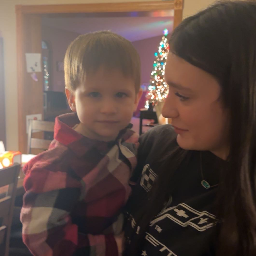What Age Can a Child Babysit Siblings? (Maturity Guide)


Written & Illustrated by
Matthew James Taylor
Kidsit Founder, General Manager

Medically Reviewed by
Gina Maria Jansheski, MD, FAAP
Board-Certified Pediatrician, Medical Reviewer
Key Takeaways
- Recommended Starting Age: Children can begin babysitting siblings for short periods around ages 11 or 12. It's advisable to start with brief intervals and gradually increase as they demonstrate responsibility.
- Minimum Age for Overnight Care: Avoid leaving children alone overnight until they are at least 16 years old.
- Legal Considerations: Laws regarding the minimum age for leaving children home alone vary by jurisdiction. In many places, there is no specific legal age, and parents are expected to make "reasonable provision" for their children's care and supervision.
- Assessing Maturity: Beyond age, evaluate your child's maturity level, judgment, and ability to handle emergencies. These factors are crucial in determining their readiness to babysit.
- Special Needs Considerations: If younger siblings have special needs or require additional care, ensure that the older child is adequately prepared and capable of handling these responsibilities.
Letting an older child babysit their siblings can be a great way to save money instead of paying a babysitter. But at what age is a child ready to babysit their younger siblings?
What age can a child babysit siblings? In general, kids can start babysitting siblings for short periods around age 11 or 12. Start by leaving them for short amounts of time and gradually increase it as they prove themselves trustworthy. Don't leave them alone overnight until your oldest child is at least 16.
In this article, I'll let you know what age a child can babysit their siblings and other factors to take into account, like their maturity level and how to prepare them for being alone.
How Old Should Your Children Be Before They Can Babysit Siblings?
As a parent, you've probably been dreaming for years of the day when you could just leave your kids at home—no babysitter required! But you don't want to get too eager and leave kids alone before they're ready.
In most countries, the law is actually quite vague about when children can be left on their own. While a child is typically considered anyone younger than 16, the laws don't normally state the age when children can be left alone.
Instead, the laws contain vague statements that parents should make "reasonable provision" for their children's care and supervision. But that's more often than not left open to interpretation by the parents.
So what is the right answer?
As a general rule, I recommend that babysitters shouldn't start working before the age of 11. That's the minimum age required to take a Red Cross babysitting course. For an 11- or 12-year-old, I would highly recommend that they enroll in a babysitting course before they begin watching their siblings.
For most kids, anywhere between 11 and 14 years of age is a good time to start letting them babysit their siblings. Although exactly when they're ready will depend on a number of factors.
Is your child an only child? My article At What Age Does Your Child Stop Needing a Babysitter? (Age & Maturity Guide) is more relevant for that situation!
Babysitting Siblings - Factors to Consider Besides Age
Age is a good baseline to begin with when deciding if your oldest child is ready to babysit their siblings. But it's just a start.
You need to consider other factors as well before deciding if they're ready to stay home alone. Different kids will be ready at younger or older ages, depending on a bunch of additional factors.
Does Your Child Have Good Judgement?
If your child runs into a situation that you haven't discussed with them while they're babysitting their siblings, will they know how to work through it on their own? Or are they more likely to panic when they aren't sure what to do?
How are their overall problem-solving skills when they are faced with a difficulty and need to figure it out?
You want to be confident that they'll know how to react if a quick decision is needed, or if they're dealing with an emergency.
Do Any of Your Children Have Special Needs?
If your younger children are all age-appropriate, well-behaved, and pretty self-sufficient, then your oldest will have a fairly easy time when it's time to start babysitting.
However, things will be more challenging if any of your other kids are too young or have additional physical or mental needs. Managing a child with ADHD or autism will be much more of a challenge for a brand new babysitter, even if they're familiar with their sibling's condition.
Likewise, if you have a newborn or infant/toddler below the age of 2 years, the amount of attention and care required to babysit them can be substantial. The age when little ones begin walking around until they can be trusted not to get into too much trouble requires so much vigilance that the responsibility might be overwhelming for an older sibling who is left alone with them.
Some kids are also just more aggressive, anxious, or impulsive than others. Any kind of behavioral issues will make leaving your kids home alone more difficult. It doesn't matter if the issue is with the babysitter or the young children that they're watching since both can cause problems.
If your older child has special needs, such as ADHD or behavioral issues, it will take them a little more time to develop the maturity level needed to babysit younger siblings. Children at any age with ADHD will most likely be too impulsive, distractible, and lack the judgment to care for younger children until they are quite a bit older. You have to have an excellent attention span and be able to focus and think ahead to assume the responsibility of one or more younger children safely.
One way to look at the situation more objectively would be to consider the kinds of reinforcements your older child needs to get through a school day. If your child has an IEP (individualized education plan) and needs accommodations at school due to the problems mentioned above, it will be explained pretty well in their IEP. Reviewing the goals set by the special education teacher will help you determine if your child possesses the skills needed or is still working toward attaining them, in which case it is best to wait until they get a little older.
Kidsit babysitting statistics
21.46% of babysitters are able to work with special needs kids.
Post a free job here on Kidsit and list 'special needs' as a requirement to attract the right babysitting candidates.
(Babysitting statistics calculated weekly from our live member data — Updated 16 Feb 2026)
Are Your Children Self-Sufficient?
Can they brush their own teeth, get themselves a glass of water, call you if there’s a problem? The more that your children are already able to care for themselves, the less you'll need to worry about when letting siblings babysit each other.
Your oldest is probably ready to babysit their siblings if they're capable of cooking meals, washing dishes, going to bed on time on their own, and completing other tasks around the home.
If your child takes the initiative and knows to do things without being asked, that can be a very strong sign that they're mature enough to babysit. When you do give your child instructions, you should be able to trust that they'll reliably follow them.
Your child should also be able to identify safety hazards and avoid them, both inside and outside of the home.
How Long Can Your Child Babysit Their Siblings?
When you're letting your oldest child babysit their sibling for the first time, it's best to start small and work up in increments.
You can start by having them watch their sibling while you are still in the house, for example, working in another room. You will likely be in earshot and can determine if there are control issues or other problems. If that goes well, the next step might be to go over and talk to the neighbor for just 10 or 15 minutes. If you come back and nothing has gone seriously wrong, then you can leave for longer periods of time.
Next, you may leave your children at home for an hour or so while you go grocery shopping. Let them know it's a chance to prove that they're trustworthy. Although if you come home to fighting kids, broken objects, or messes, that's a clear sign they aren't ready to be left alone yet.
Eventually, if things are going well, you can start leaving your kids alone for a few hours at a time. Whether that's having them come home alone after school while you're at work, or in the evening while you go out for dinner with your partner for a date night, you’ll determine when they might be ready depending upon how things have gone with the previous babysits.
When Can Children Babysit Siblings Overnight?
I would not leave an older child to babysit overnight until they're at least 16 and can drive safely. Because let’s face it, safe driving takes a lot of emotional maturity. You have to be able to follow the rules, be watchful, and avoid being impulsive. Those are pretty close to the skills needed for babysitting.
An 11- or 12-year-old may be ready to babysit in the afternoon or evening. But babysitting at nighttime is an entirely different situation that they aren't quite ready for in terms of maturity.
Tweens simply aren't prepared to handle the extra responsibility that comes with babysitting overnight. If you ask them if they're ready to babysit overnight, they might think they are. But once they're in a dark and quiet home all by themselves, they will probably feel very uneasy and scared, which is pretty normal for that age.
The difference between babysitting at night instead of during the day is mostly a mental one. It can be a very creepy experience for younger kids.
It also presents some new safety concerns. How will they react if someone knocks on the door late at night? Even if they know not to answer the door, just having someone knock late at night can be enough to throw a younger child into a panic when they're home alone.
They have to have developed a good level of foresight. That’s the ability to look ahead and determine, “if I do this, such and such might happen—or not.” This is a higher-order executive function and something important to teach your children from a young age. However, that part of the brain only begins the maturing process at around age 12 or so. With the right example and instruction, these skills can become well developed in the second decade of life. But, when you think about it, a fair number of teens seem to be lacking in this area until well into their twenties!
For that reason, I personally think the minimum age that kids should babysit overnight is 16. By that age, you should be able to tell if they are prepared and mature enough to handle the extra responsibility and pressure.
You should also check out my article How Old Should An Overnight Babysitter Be? (Safety Guide) for more details.
Prepare Your Child to Babysit Siblings
Once you decide that your child is old enough to start babysitting their siblings, you don't want to just throw them into it without any guidance. You should plan to provide them with the best chance to succeed as possible.
Start by making sure that they feel comfortable being alone and capable of looking after their younger brothers or sisters. You don't want to force it onto them if they might feel overwhelmed.
Signing your child up for a babysitting course is a great place to start. That way, they can learn most of the skills and knowledge they'll need to keep themselves and their siblings safe.
You should talk your child through most common scenarios, like what they need to do in an emergency. And you’ll want to provide them with your cell phone number, along with that of some trusted neighbors or friends they can contact if they run into problems.
Try roleplaying some situations that might come up, and let them talk through what they would do. What should they do if the smoke alarm goes off, or if their sibling falls and scrapes their knee? How should they handle it if their sibling won’t go to bed? What will they do if the doorbell rings?
Finally, make sure that you also discuss any specific guidelines for when they're home alone. For example, decide whether they're allowed to have friends over while you're away or not. Also important to talk about is what they're allowed to eat, how much they can watch TV, talk on the phone, or use other devices, and any other house rules.
Conclusion
Kids are usually old enough to start babysitting their siblings for short periods during the day around age 11. Most kids can't handle being left alone overnight until they're 16 or older.
These ages are just guidelines, though. Your specific situation will depend on how mature and responsible your oldest child is.
When it's time to leave your kids alone for the first time, set them up for success. It can be helpful if you write out all of the resources and rules for your child and stick it to the refrigerator or somewhere they can easily access it when they're not sure what to do.
Gradually increase the amount of time that your children are left alone and before long you can reach a point when you will no longer need to use a paid babysitter from outside your family. Hooray!
Next:
What information should you leave with your babysitter?



































